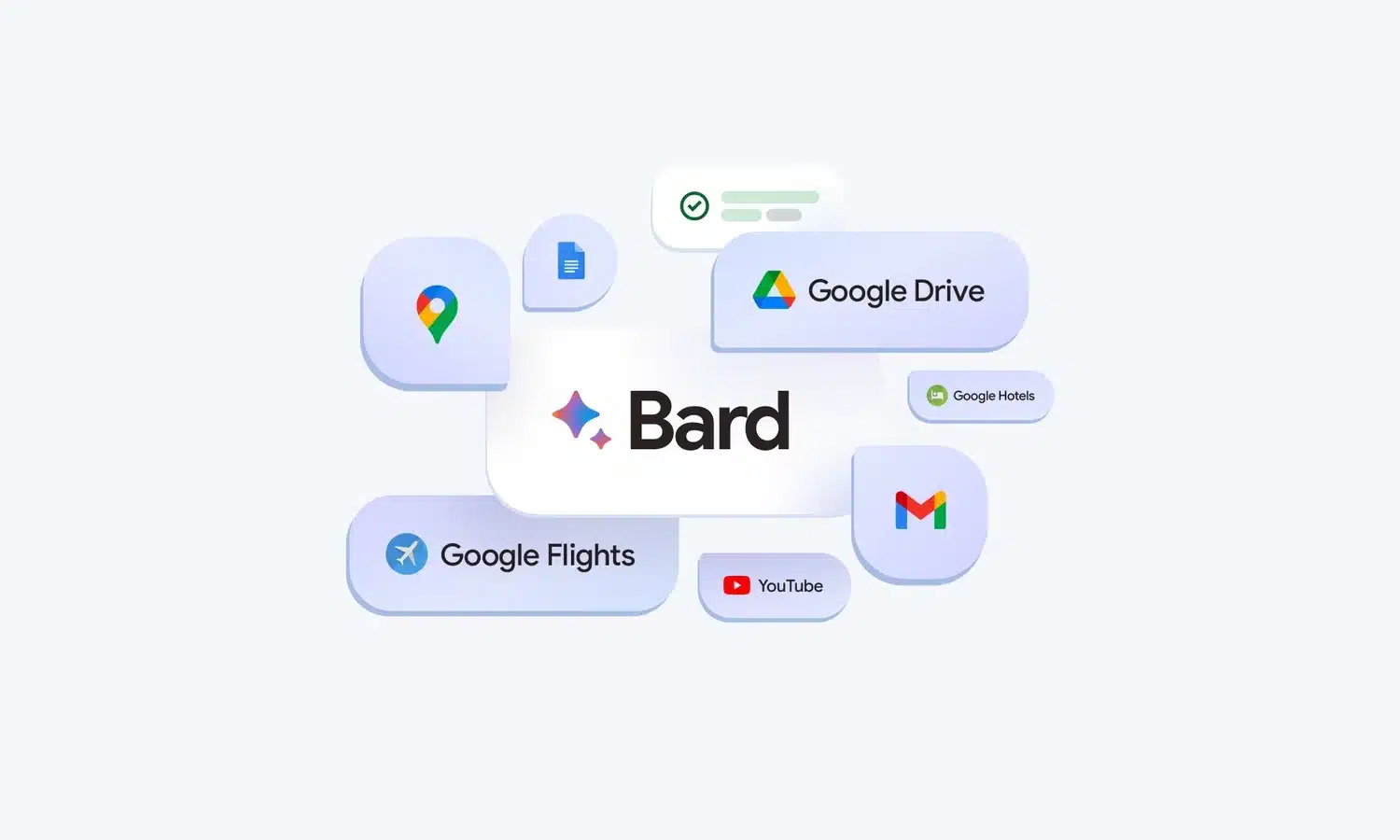
Meta unveils a new Facebook logo, reactions and more
Meta has launched what it describes as a "refreshed identity system for Facebook". This way of referring to a new logo should prepare you for an avalanche of further flowery language, and in this regard Facebook does not disappoint.
What is the purpose of the logo redesign? Meta says it has "a focus on fostering effortless, self-initiated exploration and connection across every touchpoint". The new logo is described as being "bolder, electric and everlasting", but it has already been the subject of some ridicule just hours after launch.

Amazon shows off new Fire TV devices
Amazon is hoping to redefine your TV experience with some new devices. You see, the company today unveiled a series of major updates to its Fire TV range.
Priced at $59.99 (pre-order here), the new Fire TV Stick 4K Max is Amazon's smartest and most powerful streaming stick to date. Not only does it come with the Fire TV Ambient Experience, but it also offers Wi-Fi 6E support, a 2.0 GHz quad-core processor, and an impressive 16GB storage. Its ability to showcase visuals in 4K Ultra HD coupled with Dolby Vision, HDR, HDR10+, and Dolby Atmos audio promises a treat for the senses.

Amazon eero Max 7: What you need to know about the WiFi 7 mesh system
When it comes to wireless mesh systems, eero has long been a popular option. The latest announcement from Amazon of the eero Max 7, its premiere WiFi 7 mesh system, should continue that popularity.
Heralded as the fastest and most robust eero to date, the eero Max 7 integrates the company’s TrueMesh networking technology with the cutting-edge WiFi 7 standard. As a result, you will get enhanced speeds, minimized interference from nearby networks, and a significant improvement in mesh latency.

Amazon unveils next-gen Echo devices
Amazon, the online retail titan, has unveiled its latest lineup of Echo devices. Ranging from the refreshed Echo Show 8 to the entirely new Echo Hub, and the fashion-centric Echo Frames. Notably, in an intriguing partnership, Amazon has joined hands with Safilo to infuse the prowess of Alexa into the iconic Carrera eyewear designs.
“Echo devices have never been more popular,” notes Daniel Rausch, vice president of Alexa and Fire TV. With the increasing dependency on Alexa for tasks, from smart home control to setting reminders, Amazon aims to enrich these experiences further with their latest offerings.

GNOME 45 'Rīga' Linux desktop environment is released
Every year, I eagerly anticipate the latest GNOME releases, and 2023 is no exception. The team behind the GNOME project has once again gifted us a fresh version that promises to refine our everyday digital interactions. I’m excited to share that GNOME 45, code-named “Rīga”, is finally here.
One of the most visible transformations in GNOME 45 is the overhauled activities button. Previously labeled “Activities,” this button, located on the top bar, has evolved into a dynamic workspace indicator, making its function clearer to newcomers. As we bid goodbye to the old app menu, this revamp makes room for newer designs.

Add 8TB of storage to your PlayStation 5 with the Sabrent Rocket 4 Plus SSD
Sabrent has launched a new solid state drive that's sure to delight PlayStation 5 users everywhere. The Sabrent Rocket 4 Plus 8TB SSD is the largest capacity internal storage drive for PS5 on the market. It comes bundled with Sabrent's PS5-optimized heatsink for exceptional cooling performance. The M.2 drive isn’t only for the PS5, obviously; it will also work with a compatible PC.
The Sabrent 8TB Rocket 4 Plus NVMe 4.0 Gen4 PCIe M.2 Internal SSD brings a multitude of advantages to the table. Utilizing flash disk technology and a PCIe Gen4.0 x4 interface, this storage solution is a speed demon. When paired with a compatible motherboard, you can achieve mind-blowing performance speeds of up to 7100 MB/s (read) and 6600 MB/s (write). Even if you're using a PCIe Gen3 motherboard, you'll still enjoy impressive speeds of up to 3400 MB/s (read) and 3000 MB/s (write).

Get a Linux-style tiling window manager on Windows
Tiling window managers (WM) provide Linux users with a way to customize a desktop environment to suit their personal preferences. Windows can be arranged to avoid overlapping and altered on the fly simply by typing in keyboard commands.
Inspired by the likes of i3 (a Linux window manager aimed at power users and developers) and Polybar (a fast and easy-to-use tool for creating status bars), GlazeWM brings this functionality to Windows, and the tool has just undergone a massive update. Version 2.0 fixes a number of problems and introduces a wealth of new features.

Get 'Coding All-in-One For Dummies, 2nd Edition' (worth $24) for FREE
Adding some coding know-how to your skills can help launch a new career or bolster an old one.
Coding All-in-One For Dummies offers an ideal starting place for learning the languages that make technology go. This edition gets you started with a helpful explanation of how coding works and how it’s applied in the real-world before setting you on a path toward writing code for web building, mobile application development, and data analysis.

Cost of insider risk soars as defenses fail to keep pace
In 2023, the total average annual cost of an insider risk increased to $16.2 million, a 40 percent increase over a four-year period.
This is among the findings of a new insider risks report from DTEX Systems, based on research from the Ponemon Institute. The study also shows that the average number of days taken to contain an insider incident has increased to 86 days.

Attackers exploit inbox rules to avoid detection
New research shows that if an attacker has compromised an email account they can use inbox rules to hide in plain sight while they quietly move information out of your network via your inbox and hide security warnings.
The report from Barracuda reveals techniques including setting a rule to forward to an external address all emails containing sensitive and potentially lucrative key words such as 'payment' or 'confidential' to steal information or money.

10 years on, the Internet Archive now offers over 250,000 emulated games and programs that run in your browser
It’s been a decade since the Internet Archive first began offering software that you could run in your browser. Since then, it has added new sections and games to its collection, and there are now over a quarter of a million items available to run for free.
If you haven’t visited The Emulation Station in a while -- or indeed, ever -- then it’s well worth taking a look. Sections on offer include Console Demos, Console Living Room, Handheld History, Internet Arcade, Software Library, and Calculator Drawer.

79 percent of organizations are confident in their ransomware defenses
A new report from SpyCloud shows that while 79 percent of organizations say they are confident in their ransomware defenses, 81 percent were affected at least once in the past 12 months.
The study also shows that infostealer infections preceded 22 percent of ransomware events for North American and European ransomware victim companies in 2023. 76 percent of infections that preceded these ransomware events involved the Raccoon infostealer malware.

IT and finance battle for control of cloud spending
A tug-of-war between finance and cloud leaders is preventing enterprises from controlling their cloud spending, according to new research.
The study from Vertice, of 600 senior finance and tech leaders in the US and UK, shows cutting cloud spending is revealed as the number one cost-saving priority for over a third of finance leaders, but only nine percent of technical leaders say that managing cloud costs is a top concern.

Is banning the right solution to dealing with problem apps? [Q&A]
Lots of apps are potentially transmitting and saving user data without express permission and this has led some administrations to consider bans.
In May, Montana passed the first bill to ban TikTok statewide due to data concerns, and India has banned 60 apps, including TikTok, claiming they were transmitting user data back to China.

With the launch of Bard Extensions, Google brings AI to many more of its products and services
The relentless march of AI shows no signs of slowing, and Google is eager to steal a piece of the actions from OpenAI's ChatGPT with its own Bard. It is with this aim in mind that Google has launched a huge update to its generative artificial intelligence tool in the form of Extensions.
With Bard Extensions, Google is achieving two things. Firstly, it expands the capabilities of Bard by letting it tap into the power and data of its other services including YouTube and Maps. Secondly, it makes the likes of Gmail and Drive more useful by harnessing the power of AI.


